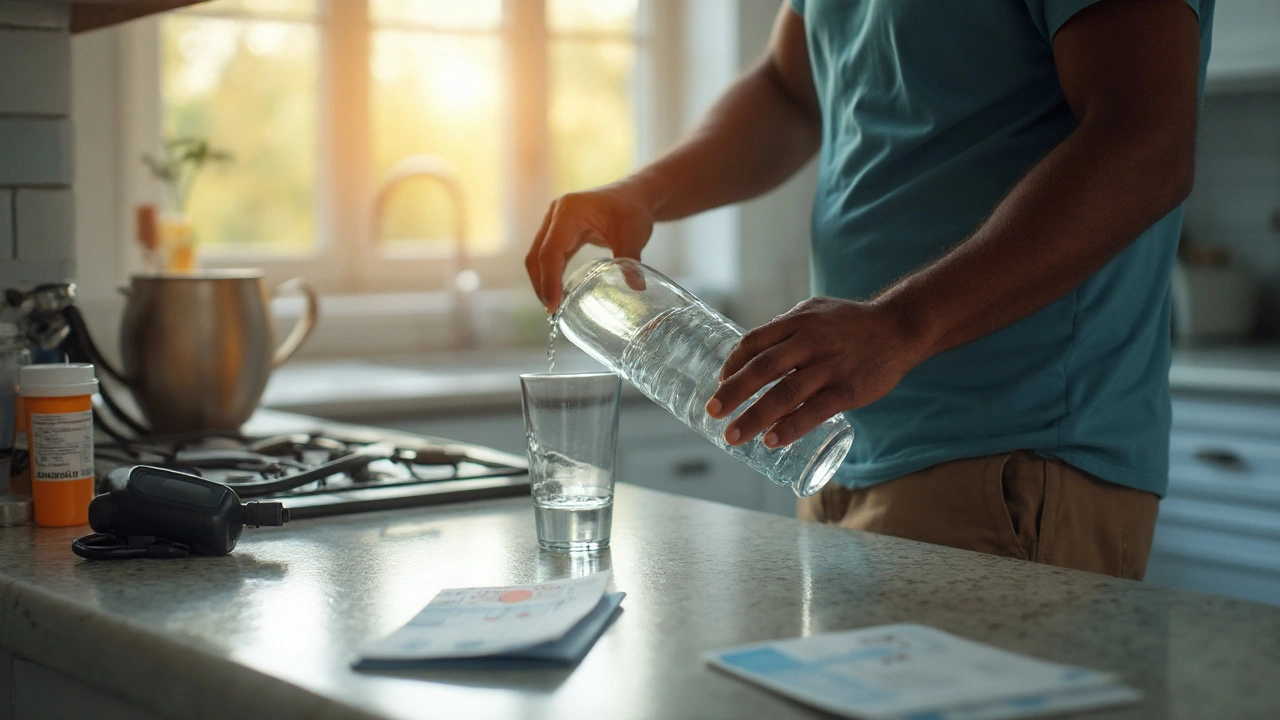
On lisinopril? Learn how dehydration affects blood pressure and kidneys, how much to drink, heatwave tactics, sick‑day rules, and when to call your doctor.
If you take lisinopril for high blood pressure, a cold, flu, or stomach bug can make you wonder whether you should keep taking your pill. The good news is you don’t need a PhD to handle a sick day – just a clear plan.
Most doctors say it’s safe to keep taking lisinopril unless you develop symptoms that affect fluid balance. Skip the pill if you have:
In those cases, holding the medication for a day or two can prevent low blood pressure or kidney stress.
If you’re only mildly sick – think runny nose, sore throat, or a low‑grade fever – keep taking lisinopril exactly as prescribed. Drink plenty of water to stay hydrated; dehydration is the real enemy, not the medication.
When you do need to skip a dose, don’t double up the next day. Just resume your normal schedule once you’re back to eating and drinking normally.
Keep a small notebook or phone note with these rules. That way, if you’re feeling foggy, you can quickly check what to do.
Also, watch for signs that your blood pressure might be changing while you’re sick. If you feel unusually light‑headed, have a rapid heartbeat, or notice swelling in your ankles, call your doctor. Those could be clues that you need a dose adjustment.
Finally, always let your healthcare provider know if you have to skip lisinopril for more than a couple of days. They might want to check your blood pressure or run a quick lab test to make sure your kidneys are okay.
Remember, the goal of sick day rules is to keep you safe without messing up your long‑term blood pressure control. A short pause when you’re vomiting or severely dehydrated is usually enough, and you’ll get back on track as soon as you feel better.

On lisinopril? Learn how dehydration affects blood pressure and kidneys, how much to drink, heatwave tactics, sick‑day rules, and when to call your doctor.